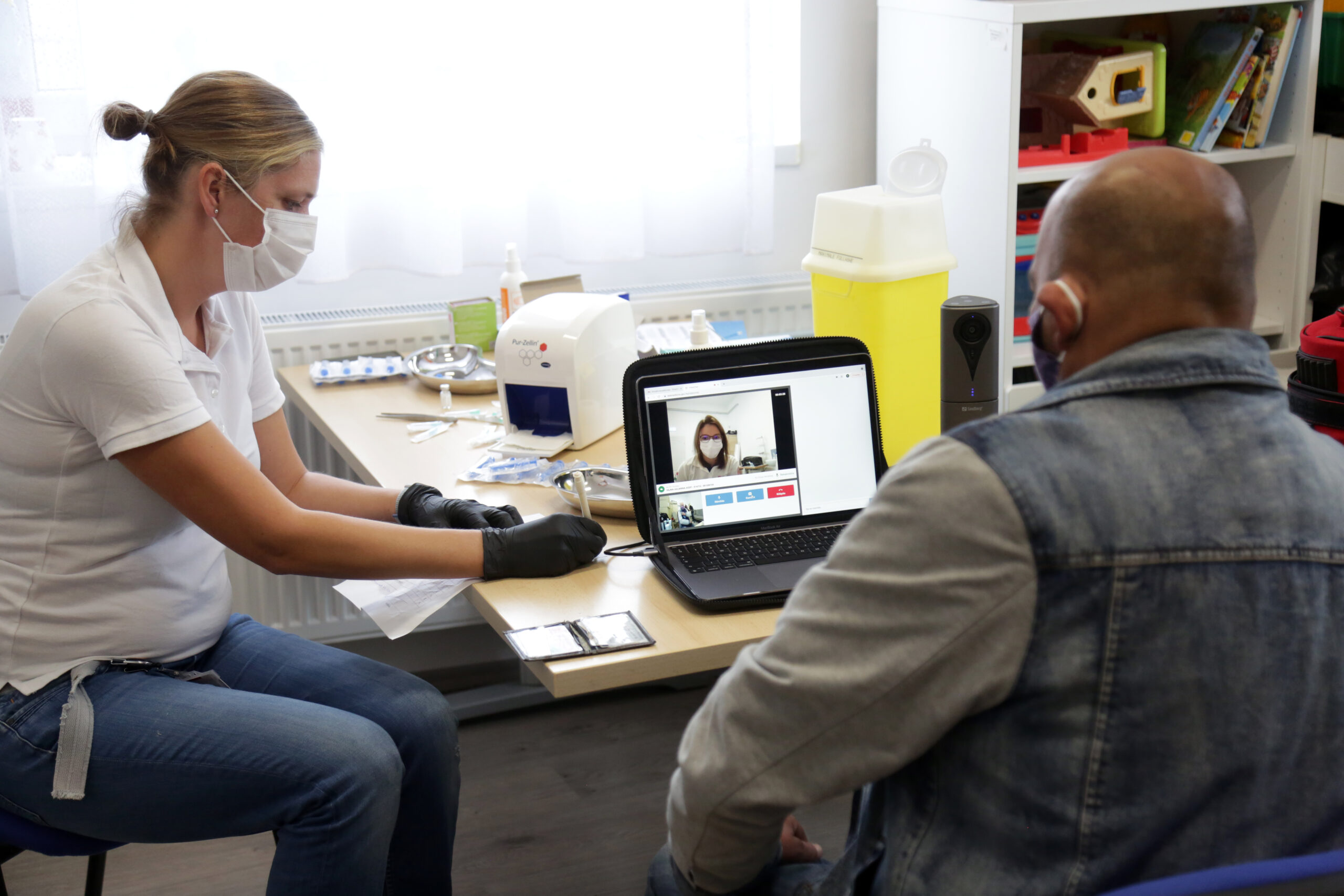In 2021, online health care services were launched in four homeless shelters in Budapest, Hungary, as part of an experimental program. A total number of 75 clients participated in the pilot, which provided telemedical consultations biweekly for three months. The success of the program is indicated by the fact that three-quarters of the participants completed the full course of 6 online visits, and new clients also wanted to join on the fly. Doctors working in the program treated the same number of patients in a shorter time compared to face-to-face service.
“From our clients, 20 people participated in the program, and it is a huge success of the initiative that there were no dropouts, in fact, more people wanted to join during the process,” says Ildikó Szekeresné, an employee of the Shelter House Foundation. During the 12-week online project, a case of a client with resistant hypertension (high blood pressure almost unresponsive to medication) was solved, while another participant was newly diagnosed with diabetes.
“Our clients liked the telemedicine visits, mostly because they didn’t have to travel, they didn’t have to wait, and there was no discrimination, which often happens in a face-to-face situation. This is also the reason why it is so difficult to get homeless people to go for an ambulatory appointment: in many places, the health care providers want to “get rid” of them quickly. The current program has now partially replaced the primary care services, but in my opinion, telemedicine can be effective even in the case of dermatology or psychiatry, we hope that even these services can be launched in the future,” Ildikó Szekeresné summarized her experience.
The research of the Medical University of South Carolina cited in a previous post also concluded that if medical care is not accessible on foot and public transportation must be used, homeless persons are more likely not to go to specialist care.
“Our clients were also happy to participate in the online visits,” confirmed Szilvia Toldi, an employee of a homeless shelter operated by the Hungarian Charity Service of the Order of Malta. “I think it is important to mention that this type of care can be effective mainly for those who can hear well and have good vision, and it is also necessary that the institution has suitable technical conditions for the online medical service.”
One of the interesting results of the program, which lasted for three months and included a total of 415 online visits, was that the online visits went faster compared not only to the expectations but even to face-to-face appointments, as underlined by Szilvia Toldi. “Our clients were focused only on their health complaints and did not start telling stories unrelated to their medical issues, which often happens during in-person medical examinations,” she added.
At the end of the program, the focus group discussions with the participating professionals revealed that, based on the pilot program experience, telemedicine can be effective in providing care to the homeless if an assistant helps to establish the telemedical connection on site. The doctors of the pilot program also emphasized that online visits can be a really effective form of care, not replacing in-person appointments, but as an alternative addition to them.
